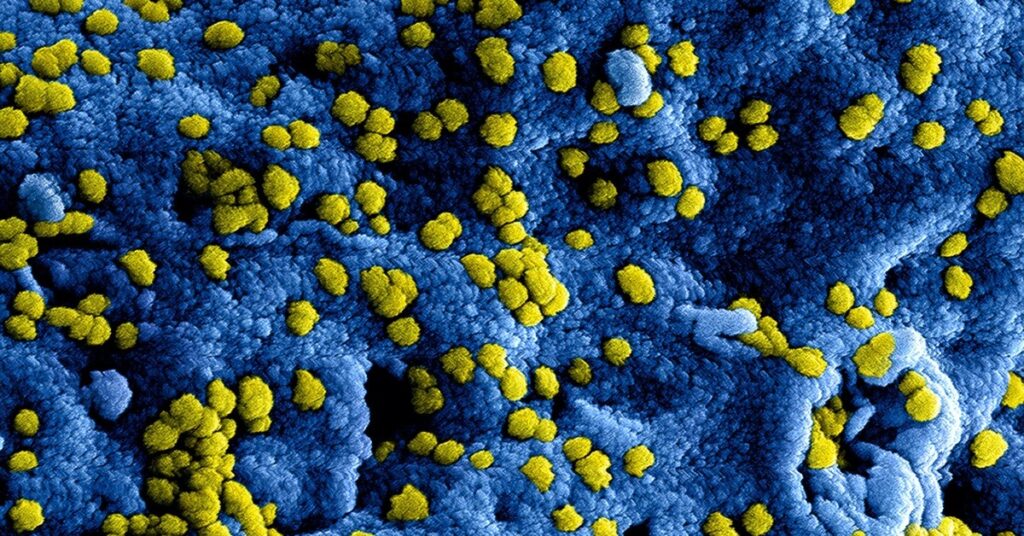
Where Do Epidemiologists Work?
Epidemiologists work in many settings, including hospitals, universities, and federal, [...]

For most, the job title epidemiologist conjures visions of lab-coated scientists employed by organizations like the Centers for Disease Control and Prevention (CDC) to track and control the spread of potentially deadly pathogens. That’s an accurate description of some epidemiologists, to be sure. However, it hardly covers the full scope of the profession.
Investigating infectious diseases is just one of epidemiology’s pursuits. There are actually many different types of epidemiologists. Some study occupational and environmental hazards, not diseases. Others study viruses and bacteria at the molecular level. Some work for pharmaceutical manufacturers and insurance companies. There are even veterinary epidemiologists who investigate disease outbreaks in animal populations.
Epidemiologists are all scientists (some are even doctors) who work on big, complex problems, but most aren’t earning the big bucks. If that’s surprising, keep in mind that most epidemiologists work in the public health sector and public health jobs don’t tend to pay a lot.
That doesn’t mean that there aren’t high-paying positions in epidemiology. However, if earning a huge paycheck is your goal, you’ll need to approach your career strategically. If you’re more interested in what you’ll accomplish than in what you’ll earn, so much the better. Epidemiology offers many opportunities to make others’ lives healthier and happier.
In this article about how much epidemiologists make, we cover:
Epidemiology is the study of diseases, injuries, and death across populations. Where doctors examine and treat individual patients, epidemiologists look at groups of people to find solutions to public health problems and help develop better medicines and treatments. These groups can include:
Epidemiologists look at who gets sick and dies, and when, how, and why it happens. Armed with this information, they can identify which populations are most vulnerable, which treatments do and don’t work, and which preventative measures are most effective. They also develop other relevant information that can be used to prevent the spread of illnesses, treat those who are sick, and better protect at-risk populations.
All epidemiologists spend a lot of time looking at data, searching for trends, and drawing useful conclusions. An epidemiologist’s day-to-day duties may include:
The US Bureau of Labor Statistics (BLS) reports that the average epidemiologist earns about $80,000 per year. According to Indeed, the average epidemiologist salary is closer to $69,000. Salary.com’s figures suggest that most epidemiologists earn closer to $104,500.
Determining which source has the most accurate information can be tricky. All of these figures are gathered via surveys and are self-reported. Perhaps the majority of the epidemiologists who shared their salaries with Salary.com live in major metro areas where epidemiologists tend to earn more. Indeed’s survey may have attracted more responses from epidemiologists in lower-paying positions.
It’s also important to consider that a metric like average salary is not particularly useful when you’re looking at epidemiology as a whole because there are numerous epidemiological specialties. An epidemiologist may be paid more or less than the average depending on whether their specialty is:
Later in this article, we’ll take a closer look at how specialty, title, and other factors can affect an epidemiologist’s earning potential. First, however, we’ll look at schooling.
Becoming an epidemiologist means earning a master’s degree. Aspiring epidemiologists have two degree pathways open to them: the Master of Public Health (MPH) in Epidemiology, or the Master of Science in Epidemiology. Some universities only offer one or the other, while others, like University of Pittsburgh Graduate School of Public Health, offer both.
To choose between these two degrees, consider your career goals. Opt for an MPH degree program if you want to take a hands-on approach to tackling public health issues. However, if you want to pursue a career in pure epidemiological research, choose an MS in Epidemiology program, which devotes more coursework to the science of epidemiology and related statistical research methods.
Given that you’ve found your way to this article, you’re probably also interested in how your choice of degree will impact how much you can earn. Unfortunately, there’s no definitive answer. Salaries in epidemiological research are some of the highest, and the best route to a research career is the MS. It’s more likely, however, that you’ll advance to an administrative position like Director of Epidemiology with an MPH, and these types of positions often pay more than research or applied epidemiology jobs.
That said, landing one of the highest-paying positions in epidemiology will likely require earning a doctorate. Your options at this level are the PhD in Epidemiology, the Doctor of Public Health (DrPH) in Epidemiology, or a joint MD/PhD degree. If your goal is to work in higher-paid clinical or research positions, the PhD is probably the best choice. You’ll also need a PhD if you want to work in academia.
An epidemiologist’s specialty absolutely has an effect on their salary.
There are also numerous careers for epidemiologists that don’t have ‘epidemiologist’ in the title. An epidemiologist might become an environmental health inspector, a biostatistician, or a healthcare infection prevention consultant. Earning more as an epidemiologist may be a matter of broadening your job search to include positions that don’t have the word ‘epidemiologist’ in the headline or job description.
Epidemiologists work for:
According to the BLS, the sectors that employ the most epidemiologists include:
The sectors that pay the most, however, are scientific research and development services, where epidemiologists can earn about $120,000, and hospitals, where epidemiologists can earn about $96,500. Given that most openings for epidemiologists seem to be in state and local government agencies, you can be reasonably sure that the competition for the highest-paying positions in epidemiology is fierce. If you want to become one of the 10 percent of epidemiologists making more than $123,000, look for opportunities in research, pharmaceuticals, or medicine.
Time and hard work are the keys to boosting earning potential in almost all fields, and epidemiology is no exception. Jobs in epidemiology are growing about as fast as average, which means new jobs are being created all the time. That’s good news, but you’ll face a lot of competition for the top-paying jobs in the field. If you’re working in applied epidemiology, earning a doctoral degree may help you land a higher-paying clinical epidemiology position.
Obtaining one or more professional certifications might also help you advance more quickly into higher-paying roles. The National Board of Public Health Examiners offers the Certified in Public Health designation. The Certification Board of Infection Control and Epidemiology offers the Associate – Infection Prevention and Control (a-IPC) and Certification in Infection Control (CIC) credentials.
Then again, earning as much money as possible may not be why you’re exploring a career in epidemiology. This public health discipline ranks fifth on US News & World Report‘s list of the best science jobs, even though surveys suggest that opportunities for advancement and increased salary aren’t all that easy to come by. You’ll make a comfortable living working in epidemiology, but you probably won’t get rich. What you will get is the satisfaction of knowing that what you do is saving lives and making the world a healthier, safer place. That can mean a lot more than zeroes on a paycheck.
Questions or feedback? Email editor@noodle.com

Epidemiologists work in many settings, including hospitals, universities, and federal, [...]

A degree in statistics can launch your career as a [...]

An MPH in Community Health Education enables you to direct [...]

The ties between human, animal, and environmental health sit center [...]
Categorized as: Epidemiology, Public Administration & Policy, Public Health, Nursing & Healthcare